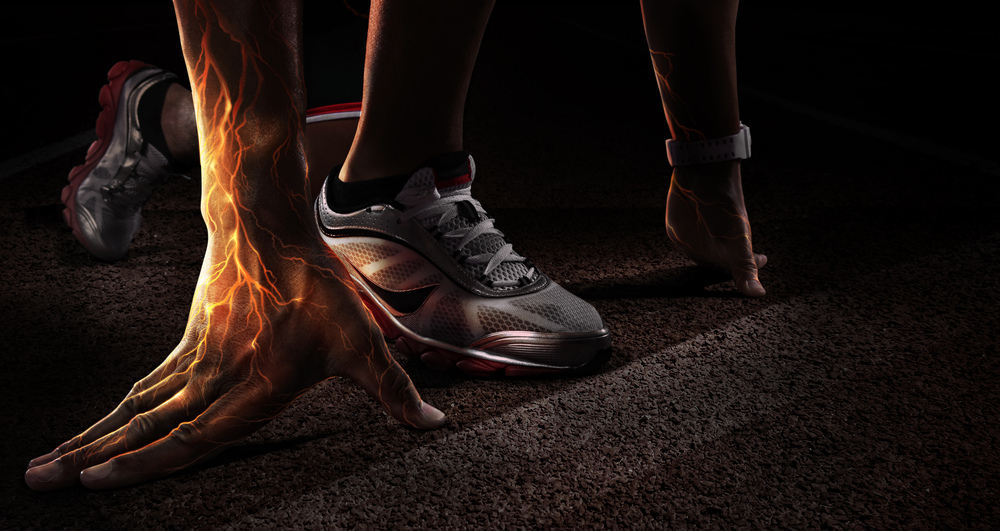We all know that the lack of testosterone opens a Pandora’s box of symptoms and conditions that impact the body. Some of the hallmark symptoms of low testosterone include chronic fatigue and the lack of drive and libido.
Let’s discuss why low testosterone plays an integral role in your energy levels, as well as look at the ways how to address low testosterone and how to deal with it.
What is testosterone?
Testosterone is generally thought of to be the sex hormone that drives masculine characteristics. This includes libido, bone and muscle mass and density, strength, as well as the production of red blood cells, not to mention the production of sperm and ejaculate.
What causes low T in men?
Testosterone production is at its peak when males undergo puberty. This surge in testosterone production then levels off once males reach their late teen years. It then starts declining from age 30 onwards. This is what makes it likely that men will start to notice symptoms over time.
There are other contributing factors to low T for men. This includes genetics, taking certain kinds of medication, and chronic diseases such as obesity, hypertension, and diabetes.
How do you know if you have low testosterone?
While many men will not have very noticeable symptoms of declining T levels, other men might experience otherwise.
We already know that testosterone plays a central role in developing lean muscle mass and strength – and that its absence causes the opposite. The same is true when it comes to bone mass, strength, and density – men with lower T are more prone to bone fractures and osteoporosis.
Testosterone also plays a key role in the male reproductive system and the production of sperm, which is why a decrease in testosterone can lead to problems like erectile dysfunction, lack of interest in sex, and infertility.
Long-term consequences may include mood swings, loss of body hair, gynecomastia, or the development of unsightly “man boobs”, and poor skin health.
If you are at all concerned about such symptoms, it would be best to get a consultation with your doctor to find out the exact root cause of the symptoms you are experiencing – whether it is low testosterone responsible for your symptoms or if there are other more insidious issues at play.
Low testosterone and chronic fatigue
 Granted, it’s perfectly normal to feel exhausted after a long day. But alarm bells should be ringing when you experience it more often than you should. That might mean something is amiss with your hormone levels.
Granted, it’s perfectly normal to feel exhausted after a long day. But alarm bells should be ringing when you experience it more often than you should. That might mean something is amiss with your hormone levels.
Tiredness and exhaustion that meddles with your daily routine, productivity, efficiency, and sexual desire might mean low testosterone levels.
Sure, declining testosterone levels are as natural as a part of aging as your hair going gray is. It is understood that testosterone levels decrease about 1-2% yearly as early as you hit your 30s.
But excessive fatigue exacerbated by symptoms like increased body fat percentage and diminishing muscle mass as well as an inability to put on more weight could mean a substantial drop in testosterone levels that require a pick-me-up.
This can be fatigue that doesn’t go away after regular rest and sleep. And trust us, it’s next to impossible to find the motivation to exercise when your energy levels are so low.
If your symptoms of fatigue and exhaustion are found out to be due to a decline in testosterone levels, undergoing treatment and lifestyle changes can help make you feel reborn again.
Testosterone regulates vigor, metabolism, and physical performance. The lack of testosterone means your body isn’t running as well as it should be. The extra work that the body does to compensate for the inefficiency is what saps you of your lifeforce.
Insomnia can be a side effect of low testosterone, and can cause more fatigue as you are not getting the rest that your body is craving for – as well as that persistent morning “fog” that seems to cloud your thoughts that is meddlesome to your concentration and focus.
This cognitive can also impact your relationships with your significant others or colleagues at work, as well as the quality of your work itself.
It’s like getting all the sleep your body needs, but still wake up tired and out of your wits.
How are low testosterone levels treated?
If you suspect that your low energy is due to low testosterone, the best immediate course of action to take is to consult your doctor. They may run blood tests to verify the levels of your hormones; and, if they are deficient or otherwise in excess, they may refer you to a specialist such as an endocrinologist to explain to you your results.
For exceptional cases where testosterone levels are low or nonexistent, testosterone replacement therapy might be offered to address the symptoms. This might be given orally or intravenously.
However, most symptoms of low testosterone don’t require special treatment at all. Rather, a combination of lifestyle and dietary changes as well as supplementation can turn things around.
These lifestyle and dietary changes may include the following:
Better sleep hygiene
Sleep hygiene is vastly underrated. Testosterone production is at its peak when the body is at rest, which is why setting up a consistent sleep pattern may be beneficial for you.
This means changes in your routine before you go to sleep, such as taking a hot shower, avoiding using mobile devices and watching TV, reading a book, and going to bed at the same time.
 Relax and unwind
Relax and unwind
Stress is produced by cortisol, which is a hormone that inhibits testosterone production. Thus, stress-busting practices such as yoga and deep breathing may help, or perhaps a hobby that helps you stay in mental balance.
Eat better
Laying off the calorie and sodium-loaded fast food is a great idea. Switching these unhealthy foods with whole grains, fresh fruit, and vegetables, as well as fresh protein sources like chicken and beef. Eating well will make you look, feel, and perform better.
Get fit
Getting fit boosts mood and energy levels, and helps you gain stamina, strength, and endurance. This can be the single best thing you can do to experience an increase in testosterone, particularly when you do resistance training or high-intensity interval training (HIIT). Don’t forget to rest well!
Zinc deficiency
A zinc deficiency may cause a decline in testosterone levels. A study found out that taking a zinc supplement prevents a reduction in testosterone levels for men who have little to no exercise (otherwise living a sedentary lifestyle). A zinc supplement may help balance your hormone levels.
Fatigue isn’t just a symptom of “just getting older” – it may very well be a symptom of flagging testosterone levels.
Conclusion
A gradual decline in testosterone in men as they age is natural – there just comes a time when the male reproductive system just starts to tail off the production of it. Like menopause in women, only differing in its slow-moving, gradual decline over time.
However, the symptoms are real, and are no laughing matter – that said, if you suspect that low T may be one of the reasons why you lack energy, consult your doctor. It’s harder to pin down at what particular age this decline happens in men, because T levels drop in men at different rates and different ages.
That’s why men should be committed to exercising, as it is a natural energy booster. The same is true for keeping a healthy, testosterone-boosting diet and rule out other underlying medical conditions that might be playing a factor for lacking energy.
While supplementing testosterone levels can help increase your vigor and energy, you might want to temper your expectations – there is no magic bullet that solves the question of increasing testosterone. But they, along with the earlier aforementioned factor, can help you make the most out of your abilities.








COMMENTS